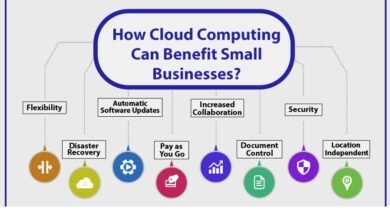How to Avoid Social Media frauds

Social media has become an integral part of our daily lives, offering countless opportunities to connect, share, and engage with others. However, with the rise in popularity of social media platforms, there has also been an increase in social media frauds. These fraudulent activities can range from identity theft and phishing scams to fake offers and misleading information. To protect yourself and ensure a safe social media experience, it is crucial to be aware of potential risks and take necessary precautions. In this article, we will discuss effective strategies to avoid social media frauds and safeguard your personal information.
Social media platforms have revolutionized the way we communicate and interact with others. However, they have also become breeding grounds for various fraudulent activities. This article aims to provide you with valuable insights and practical tips to avoid falling victim to social media frauds.
Read more: The Social Media Landscape: Trends and Best Practices
Understanding Social Media Frauds

Social media frauds encompass a wide range of deceptive practices carried out by malicious individuals or groups. These fraudsters exploit the trust and openness of social media platforms to deceive users and gain unauthorized access to personal information, financial details, or other sensitive data. It is essential to understand the common types of social media frauds to recognize potential threats and take proactive measures to protect yourself.
Common Types of Social Media Frauds
Phishing Scams: Fraudsters may pose as legitimate entities or individuals to trick users into providing their login credentials, credit card information, or other personal details.
Fake Offers and Contests: Scammers often create fake promotions, giveaways, or contests on social media to lure users into sharing personal information or making financial transactions.
Identity Theft: Cybercriminals may gather information from social media profiles to impersonate individuals and carry out fraudulent activities in their name.
Malware and Spyware Attacks: Fraudulent links or downloads shared on social media platforms can infect users’ devices with malicious software, enabling attackers to gain unauthorized access or monitor their online activities.
Signs of Social Media Frauds
Being able to identify the signs of social media fraud is crucial in preventing potential harm. Some common indicators include:
- Unsolicited requests or messages from unknown individuals.
- Poor grammar or spelling mistakes in messages or posts.
- Requests for personal information or financial details.
- Offers that sound too good to be true.
- Suspicious links or downloads shared by unfamiliar sources.
Tips to Avoid Social Media Frauds
Keeping Your Profiles Secure
Ensure your social media profiles are well-protected by following these practices:
- Use strong, unique passwords for each platform.
- Enable two-factor authentication for an additional layer of security.
- Regularly update your privacy settings to control who can view your posts and personal information.
Being Cautious of Unknown Requests or Messages
Exercise caution when accepting friend requests or engaging with unknown individuals on social media. Avoid sharing personal information or responding to messages from suspicious accounts.
Verifying Information and Sources
Before trusting any information or offers shared on social media, verify the credibility of the source. Cross-reference the information with reputable sources or conduct independent research to ensure its authenticity.
Avoiding Suspicious Links and Downloads
Never click on suspicious links or download files from untrustworthy sources. These links may lead to malware-infected websites or initiate unauthorized downloads that can compromise your device’s security.
Reporting and Blocking Fraudulent Accounts
If you come across a suspicious account or encounter fraudulent activities on social media, report the account to the platform’s administrators. Additionally, block any accounts that exhibit suspicious behavior or engage in fraudulent practices.
Educating Yourself and Others
Stay informed about the latest social media fraud trends and share your knowledge with friends and family. By educating yourself and others, you can collectively contribute to a safer online environment.
Maintaining Privacy on Social Media Platforms
Regularly review and update your privacy settings on social media platforms to restrict access to your personal information. Be mindful of what you share publicly, as even seemingly harmless details can be used by fraudsters to exploit or manipulate you.
Best Practices for Password Management
Implementing good password management practices can significantly enhance your security on social media. Here are some tips:
- Use strong, unique passwords for each platform.
- Avoid using easily guessable information, such as birthdates or pet names, in your passwords.
- Consider using a password manager to securely store and generate complex passwords.
Being Mindful of Publicly Shared Information
Exercise caution when sharing personal information on social media platforms, even with friends or acquaintances. Restrict access to sensitive details, such as your address, phone number, or financial information, to trusted individuals only.
Importance of Regularly Reviewing Privacy Settings
Regularly review and update your privacy settings on social media platforms to ensure they align with your preferences. Take advantage of features that allow you to control who can view your posts and personal information.
Protecting Your Personal Information
Be vigilant about safeguarding your personal information on social media. Avoid oversharing personal details and regularly review your profile to remove any unnecessary or sensitive information.
Recognizing and Reporting Fraudulent Ads
Fraudulent advertisements are prevalent on social media platforms. Be cautious when engaging with ads and exercise skepticism when an offer seems too good to be true. If you encounter a fraudulent ad, report it to the platform’s administrators.
Staying Informed About Current Fraud Trends
Stay updated on the latest social media fraud trends by following reliable sources of information. Being aware of new scams and techniques employed by fraudsters will help you recognize and avoid potential threats.
Establishing a Strong Online Presence
By actively engaging with others, contributing valuable content, and maintaining a positive online presence, you can establish credibility and minimize the risk of being targeted by fraudsters.
Read more: The Power of Visual Storytelling: How to Craft Engaging Social Media Posts
Conclusion
Social media frauds pose a significant threat to individuals using these platforms. By being aware of the common types of frauds, recognizing the signs, and implementing the provided strategies, you can protect yourself and ensure a safer social media experience. Remember to stay cautious, verify information, and report any suspicious activities. By taking these precautions, you can enjoy the benefits of social media while minimizing the risks associated with fraudulent practices.
FAQs
How can I protect my social media accounts from hackers?
To protect your social media accounts from hackers, ensure you use strong, unique passwords, enable two-factor authentication, and regularly update your privacy settings. Avoid clicking on suspicious links and be cautious of unknown requests or messages.
What should I do if I suspect social media fraud?
If you suspect social media fraud, report the account or activity to the platform’s administrators. Additionally, consider blocking the account to prevent further interactions.
Are there any tools or resources available to help me identify social media frauds?
Yes, several online resources provide information about current social media fraud trends. Stay informed by following reputable sources and educate yourself about the latest techniques employed by fraudsters.
Can social media fraud lead to identity theft?
Yes, social media fraud can lead to identity theft. Fraudsters may gather personal information from social media profiles to impersonate individuals and carry out fraudulent activities in their name.
How important is it to regularly review and update privacy settings on social media platforms?
Regularly reviewing and updating privacy settings on social media platforms is crucial to maintain control over who can access your personal information. It allows you to restrict access to sensitive details and minimize the risk of falling victim to social media frauds.











